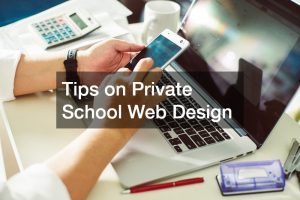- Early education significantly boosts a child’s readiness for school and overall cognitive, social, and emotional development.
- Visual materials, educational toys, and playtime can provide toddlers with fun, interactive, home-based learning experiences.
- Daycare centers offer a structured environment for developing toddlers, stimulating cognitive, social, and emotional growth.
- Early education lays the foundation for future success, with quality daycare centers enhancing toddlers’ learning experiences.
Education plays a pivotal role in a baby’s development, laying the foundation for their cognitive, social, and emotional growth. Research suggests that early education can significantly improve a child’s readiness for school. For instance, children who are exposed to early learning experiences are 44% less likely to repeat a grade, according to the National Education Association. Moreover, a study by the National Institute for Early Education Research found that children who attended a high-quality preschool had a 31% higher probability of graduating high school. These statistics underscore the profound influence of education on a baby’s overall development, highlighting its indispensable role in shaping a child’s future success.
However, education should happen as early as possible, even when your baby is still just a toddler learning to talk and walk. Although your little one may not be ready for kindergarten yet, there are plenty of ways you can provide them with fun, educational experiences from the comfort of your own home. Here are a few tips to help get your baby started on their learning journey:
Introduce Visual Materials

Visual materials for toddlers are potent tools that stimulate their young minds by making abstract concepts more concrete and understandable. They engage children’s sense of sight, promoting better comprehension and retention of information. Visual materials can enhance cognitive development by improving critical thinking, reasoning, and problem-solving skills.
Picture Books
Picture books are an excellent visual tool for toddlers. The colorful illustrations pique their curiosity and hold their attention, making the reading experience more enjoyable. Picture books also help introduce toddlers to new words and ideas, enhancing their vocabulary and understanding of the world.
Flashcards
Flashcards are another beneficial visual material for toddlers. They are simplistic yet effective, often featuring bold, clear images with corresponding words. They can teach various concepts, such as colors, shapes, numbers, and letters, providing a fun and interactive learning experience.
Educational Videos
Educational videos or cartoons designed for toddlers can also be an effective visual tool. They combine appealing visuals, sounds, and often stories to convey educational content engagingly. They can introduce toddlers to various subjects, from animals and plants to basic mathematics and science concepts.
Educational Apps
In the digital age, educational apps offer a modern form of visual learning. Many apps are designed specifically for toddlers, offering interactive games and activities that teach various skills and concepts in a fun, playful manner. They are easily accessible on tablets and smartphones, providing learning opportunities at your child’s fingertips.
Make Playtime Educational
Playtime is not just about entertainment for toddlers; it is a crucial period for exploration and learning. Combined with education, play paves the way for developing various skills, such as problem-solving, creativity, and social interaction. Keeping playtime educational also fosters a love for learning early in a toddler’s life, setting a positive precedent for their future educational experiences.
Toys that Teach
Toys are not just playthings; they can also be powerful learning tools. Choose toys that allow active participation, encourage problem-solving, and spark creativity. Blocks, puzzles, and shape sorters are excellent examples as they promote spatial awareness, fine motor skills, and cognitive development.
Role-play Games
Role-playing games are another great way to make playtime educational. They allow toddlers to imitate real-life situations, helping them understand societal roles, develop empathy, and expand their vocabulary. This could be as simple as playing ‘kitchen’ with toy pots and pans or pretending to be a doctor with a toy medical kit.
Outdoor Play
Outdoor play combines exercise with learning. Nature provides countless opportunities for children to learn about the world around them. This could involve exploring a local park, identifying different types of plants and animals, or even learning about weather patterns.
Daycare Center

Daycare centers can be crucial in educating toddlers, offering a structured environment dedicated to their development. These centers are staffed with trained professionals who understand the needs of children at this particular age, and they are skilled in creating engaging activities that stimulate cognitive, social, and emotional growth.
At daycare, toddlers are exposed to various educational activities they may not experience at home, such as group games, guided reading sessions, and art projects. These activities foster creativity, enhance fine motor skills, and promote early literacy, providing a well-rounded early education.
Moreover, Daycare centers provide opportunities for social interaction with peers, which is vital for a toddler’s social development. Children learn to share, solve conflicts, and work in teams here. They begin to understand empathy and develop communication skills.
You can find many affordable daycare centers for your toddlers. However, considering factors such as price, location, and quality curriculum will be vital. Nevertheless, your toddler will benefit from the experience.
Final Thoughts
Education is essential for a toddler’s development, laying the foundation for their future success. Parents can provide early educational experiences while their little one is still a toddler. There are many ways parents can make learning fun and accessible – from introducing visual materials to making playtime educational. Yet, quality daycare centers remain the ideal environment for toddlers’ education, as they are staffed with trained professionals and equipped with resources that can further enhance their learning experiences. Ultimately, the earlier a child starts receiving an education, the more significant its impact on their life.






